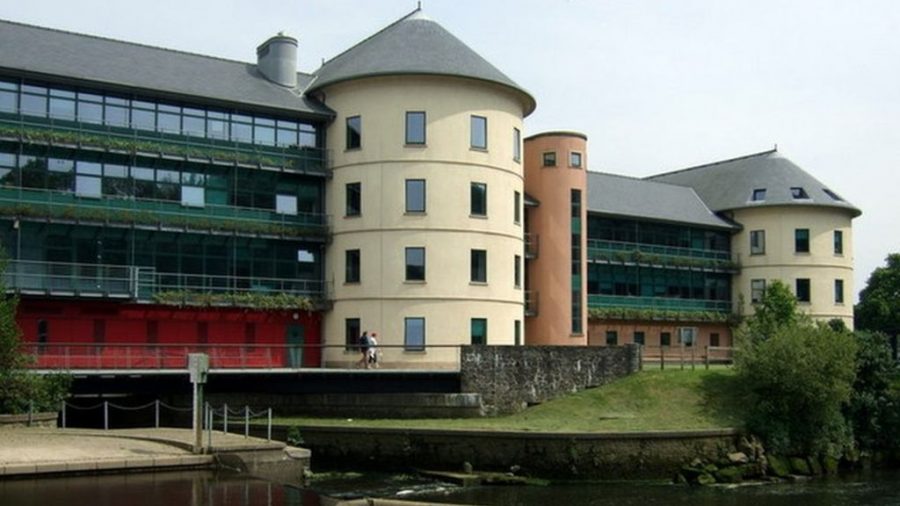News
The King’s Speech: What it means for you

THE KING’S SPEECH, a key event in the UK’s political calendar, is delivered by the Monarch at the State Opening of Parliament. Written by the government, it outlines the legislative agenda and policy priorities for the upcoming parliamentary session.
What is the State Opening of Parliament?
The State Opening of Parliament marks the beginning of a new parliamentary year. It provides the government an opportunity to present its planned bills and policies to Parliament. This event is steeped in tradition and ceremony, symbolising the formal start of the legislative process for the next session.
When Does the State Opening of Parliament Occur?
The State Opening of Parliament takes place on the first day of a new parliamentary session, which typically lasts around 12 months. There are usually five sessions in each Parliament, aligning with the period between general elections. At the end of a session, Parliament is prorogued, formally ending the parliamentary year until the next State Opening.
What Happens During the State Opening?
The ceremony begins with the Monarch’s procession from Buckingham Palace to Westminster. Upon arrival at the Sovereign’s Entrance, the Monarch leads the Royal Procession to the House of Lords. Black Rod, a senior officer, then summons members of the House of Commons to the Lords Chamber. Before entering, the Commons chamber door is symbolically shut in Black Rod’s face and only opened after he strikes it three times. This tradition dates back to the Civil War, representing the Commons’ independence from the monarchy. Following the speech, a new parliamentary session officially begins.
Traditions and Historical Facts
The traditions surrounding the Monarch’s speech and the State Opening date back to the 16th century. Before the Monarch arrives, the Yeomen of the Guard search the cellars of the Palace of Westminster for explosives, commemorating Guy Fawkes’s gunpowder plot of 1605. The practice of Black Rod banging on the door of the Commons originates from 1642 when Charles I attempted to arrest five MPs, symbolising the Commons’ right to exclude royal messengers.
The Imperial State Crown
The Imperial State Crown, worn by the Monarch during the speech, is adorned with 2,868 diamonds, 17 sapphires, 11 emeralds, 269 pearls, and 4 rubies, adding to the grandeur of this significant event.
The King’s Speech is not just a ceremonial event but a crucial moment for setting the government’s agenda for the year ahead. It blends historical traditions with the practical aspects of governance, ensuring continuity and respect for the UK’s rich parliamentary history.
Crime
Former Wales rugby star admits Christmas Day drink-driving offence

Ex-Ospreys captain was almost twice over limit in Pembroke town centre
Former Wales back row Jonathan Thomas has admitted driving through Pembroke town centre on Christmas Day when he was almost twice over the drink-drive limit.
This week Haverfordwest magistrates heard that Thomas, 43, was stopped by officers as he drove his Mercedes CLA 220 along The Green, Pembroke, at around 5pm on Christmas Day.
“The officers were very concerned at the manner of his driving, as the car was being driven erratically and was swerving to the other side of the road,” said Crown Prosecutor Sian Vaughan.
“When Jonathan Thomas got out of the car, the officers could see that he was having difficulty standing and was unsteady on his feet.”
Subsequent breathalyser tests showed Thomas had 62 mcg of alcohol in his system, the legal limit being 35.
Thomas, who has no previous convictions, pleaded guilty to the drink-drive charge and was represented in court by solicitor Jess Hill.
“He has family in the area and had travelled to spend time with them on Christmas Day,” she told the magistrates. “He’s very remorseful for his actions and hugely regrets his decision that day.”
Jess Hill concluded by saying that Thomas is currently “between jobs and living off his savings”.
Thomas, who gave his address as Main Road, Bredon, was disqualified from driving for a total of 18 months.
“The length of your disqualification reflects the fact that you were more than a little bit over the limit,” commented the presiding magistrates when imposing sentence.
He was fined £120 and ordered to pay £85 costs and a £48 court surcharge.
The former Wales back row left his role as Swansea RFC head coach at the beginning of December 2025 as a result of ongoing health concerns. He was forced to retire from playing in 2015 on medical advice after being diagnosed with epilepsy and is one of the 390 former rugby union players currently taking part in a concussion lawsuit against the sport’s authorities.
“Long-standing issues linked to the head trauma have caused me some concern recently and it has been impossible for me to give the role everything it needs,” he said in a previous interview with the BBC.
His rugby career started out with Pembroke RFC juniors before moving to Swansea RFC, which he captained when he was 19. He then joined the Ospreys where, over a ten-year period, he won four league titles and an Anglo-Welsh Cup. He was the youngest player to captain the Ospreys and, at the time of leaving, was the joint highest appearance holder, together with Andrew Bishop, on 188 appearances.
His international career saw him play for Wales at Under-16, Youth, Under-19, Under-21 and Sevens levels. He made his senior international debut against Australia in 2003, featured at the 2007 Rugby World Cup and was part of two Six Nations Grand Slam-winning sides in 2005 and 2008. Between 2004 and 2011, Thomas was included in every Wales Six Nations squad. In his appearances for Wales, he scored seven tries.
Local Government
Independent panel gives positive verdict on Pembrokeshire County Council

Four-day assessment highlights improvement, leadership and governance
AN INDEPENDENT panel has concluded that Pembrokeshire County Council is meeting its statutory performance requirements and has shown improvement across a number of key areas.
The findings follow a four-day visit in October 2025, when a group of external peers carried out a Panel Performance Assessment (PPA), a process required once every electoral cycle under Welsh Government legislation.
The purpose of the PPA is to provide an independent expert view on how effectively the council is using its functions, how it deploys resources, and whether its governance arrangements are fit for purpose.
The four-member panel was led by Phil Roberts, independent chair and former chief executive of Swansea Council. Other members were Cllr Anthony Hunt, leader of Torfaen Council; Emma Palmer, chief executive of Powys Council; and Andrea Street OBE, representing the public, private and voluntary sectors.
In its final report, the panel concluded that Pembrokeshire County Council is meeting its statutory requirements and commented favourably on many aspects of its work. The authority was described as effective, having responded well to a challenging financial position and demonstrated improvement in a number of key areas.
Among the report’s findings was praise for “a cohesive cabinet, which despite its rainbow coalition arrangements, exercises a model of distributed leadership which is particularly effective”. The panel also highlighted “a committed Senior and Extended Leadership Team who recognised the journey of improvement the council has been on under the Chief Executive’s strong leadership”.
The panel further noted “a broad set of values and behaviours consistently demonstrated across the organisation, from the Senior Leadership Team to frontline staff”, adding that there was “a genuine desire to work in the interests of the communities and residents of the county”.
While the overall assessment was positive, the report also identified areas where further progress could be made. Seven recommendations were set out, covering scrutiny arrangements, corporate capacity, collaborative leadership, economic regeneration capacity, resource prioritisation, communications, and transformation and innovation.
Council leader Jon Harvey welcomed the report, describing the assessment as a constructive experience.
“This was an extremely positive experience for the council, and an opportunity to learn and benefit from the views and perspectives of independent experts from outside the authority,” he said. “We welcome the assurance provided by the panel that we are on the right track, and the feedback which has helped to identify opportunities and areas for improvement.”
Cllr Harvey also thanked panel members for their work, along with officers from the Welsh Local Government Association who supported the assessment process.
“We accept the panel’s findings in full and I am convinced that the action plan we have developed in response to the recommendations will enable us to further strengthen key areas of our work so we can continue to provide quality services to our residents and communities,” he added.
In line with legislation, the council has produced a formal response and action plan setting out how it will address the panel’s recommendations. These will be presented to Cabinet on February 9 and to full council on March 5 for formal approval.
News
Kurtz calls on Labour MPs to back release of Mandelson papers

Opposition motion follows Epstein-linked document disclosures
A SENEDD Member has called on Labour MPs to support a Conservative Opposition Day Motion demanding the release of papers linked to Peter Mandelson’s appointment as the UK Ambassador to the United States.
Samuel Kurtz said the motion follows the publication of new files and photographs involving Lord Mandelson, which were released as part of a United States investigation into the disgraced and convicted child sex offender Jeffrey Epstein.
Speaking out, Mr Kurtz said that during Prime Minister’s Questions, the Prime Minister admitted he was aware of Peter Mandelson’s ongoing relationship with Epstein at the time of his appointment.
“That means the Prime Minister knowingly appointed Peter Mandelson to one of the most important diplomatic roles in government despite his links to Epstein,” he said. “This raises serious questions about the Prime Minister’s judgement.”
Mr Kurtz went on to accuse the Prime Minister of attempting to prevent transparency over the appointment process.
“Now, instead of being open and transparent, the Prime Minister is attempting to block the release of documents relating to Mandelson’s appointment in order to protect his own position,” he said.
He warned that Labour MPs who oppose the motion would share responsibility for withholding information, adding: “If Labour MPs support blocking the release of these papers, they will be complicit in covering up the process and judgement that led the Prime Minister to appoint Peter Mandelson as Ambassador, despite his friendship with Jeffrey Epstein.”
-

 Health6 days ago
Health6 days agoConsultation reveals lack of public trust in health board
-

 News1 day ago
News1 day agoPrincess of Wales visits historic Pembrokeshire woollen mill
-

 Crime5 days ago
Crime5 days agoPembroke man accused of child sex offences sent to Swansea Crown Court
-

 Community6 days ago
Community6 days agoCampaign to ‘save’ River Cleddau hits over 2,200 signatures
-

 Health3 days ago
Health3 days agoDoctor struck off after sexual misconduct findings at Withybush Hospital
-

 News7 days ago
News7 days agoWelsh Conservatives push for reversal of 20mph limit and major road spending
-

 Health7 days ago
Health7 days agoAmbulance called after ‘drop of mouthwash’ swallowed as 999 abuse highlighted
-

 Crime5 days ago
Crime5 days agoManhunt intensifies after woman seriously injured in Carmarthen park stabbing

























